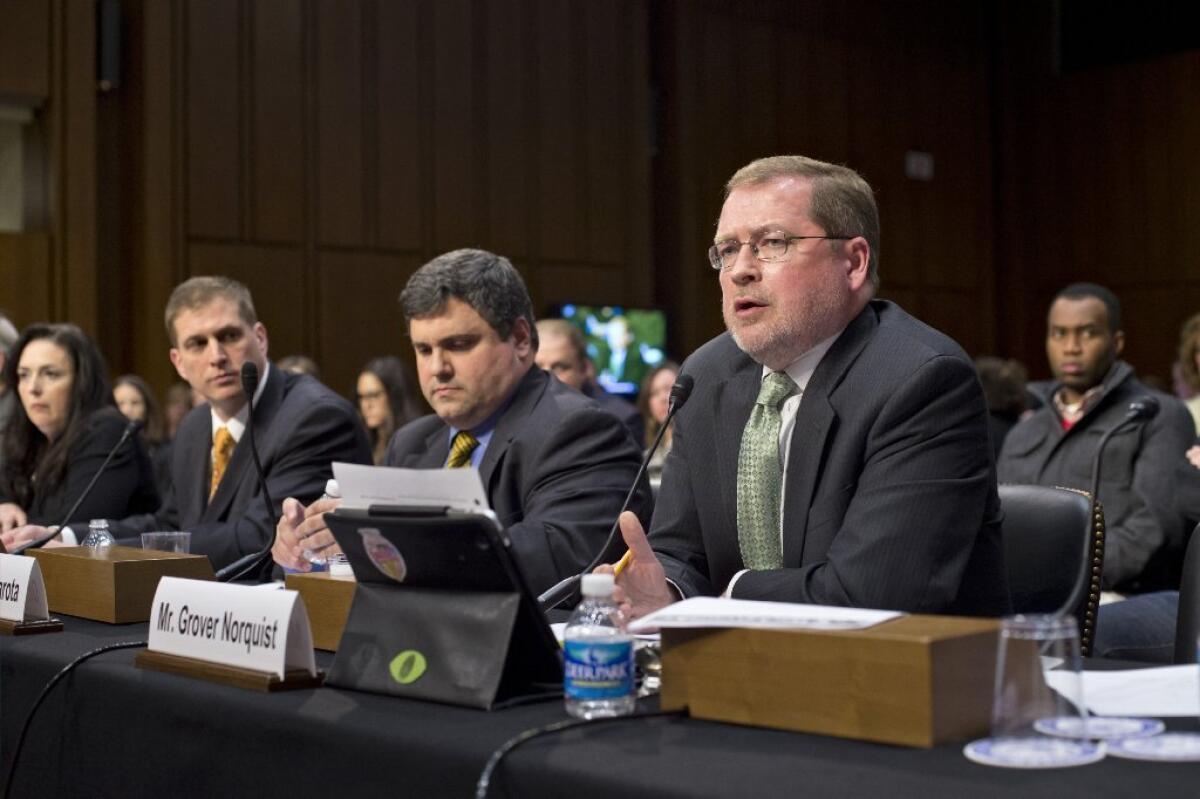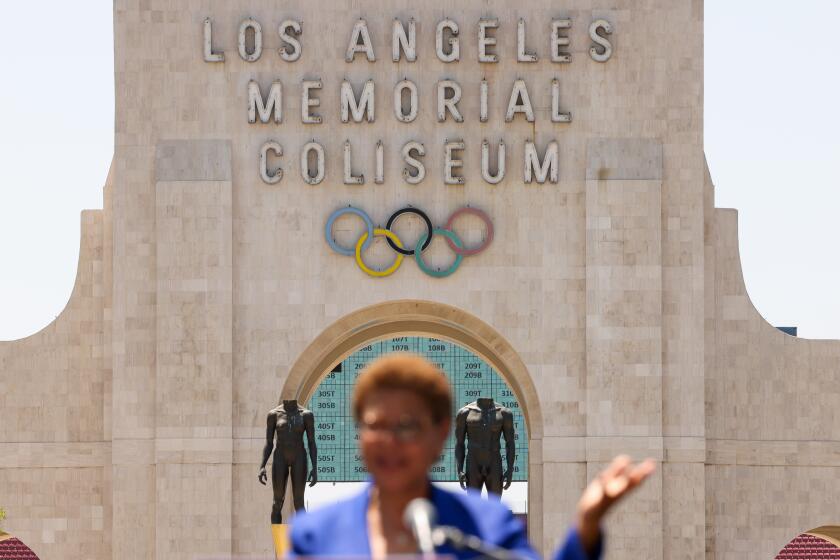Immigration hearing sparks clash of conservatives

- Share via
On Monday the Senate Judiciary Committee held its first public hearing on the sweeping immigration bill unveiled last week that seeks to overhaul the current system.
The hearings produced a sharp exchange between Sen. Charles E. Schumer (D-New York), who cautioned critics against using the Boston bombing as an excuse for delaying efforts to overhaul the immigration system, and Sen. Charles Grassley (R-Iowa), who responded by shouting that he never made any such statement.
But what intrigued me about Monday’s hearing was the clash that took place between some conservatives, who are at odds over the fiscal impact of immigration reform.
SLIDE SHOW: Five most important immigration reform issues
Take for example the testimony of Grover Norquist, founder and president of Americans for Tax Reform, who advocates in favor of more immigration as a way to help boost the economy and ensure the United States remains competitive in a global economy.
Norquist argues that immigration reform would help reduce the deficit by boosting the gross domestic product, or the size of the economy, and generating tax revenues. He points to a study by the American Action Forum, a conservative think tank, that cautioned that without immigration and “in the absence of immigration, the population and overall economy will decline as a result of low U.S. birth rates.”
His testimony, however, was in sharp contrast to Steven A. Caramota of the Center for Immigration Studies, a conservative group that advocates for stricter controls on legal immigration. Caramota told the committee that undocumented and legal immigrants are generally a drain on the government because they tend to have lower education levels and therefore tend to rely more heavily on public assistance programs to survive.
That’s where things got interesting. Norquist disputed those claims, noting that undocumented immigrants are barred from receiving public assistance, and even under the Gang of Eight bill those immigants who legalize would have to wait 13 years to apply for welfare. He also took aim at the claim that immigrants don’t move up the economic ladder because their wages remain stagnant. “After the 1986 Reagan amnesty, immigrant wages increased immediately after they became legal, sometimes by as much as 15 to 25%,” he concluded.
No doubt, Monday’s hearing is just a preview of the debate that will follow for months and the unusual alliances that are forming for and against the bill.
ALSO:
Boston bombings: Don’t blame boxing
More to Read
A cure for the common opinion
Get thought-provoking perspectives with our weekly newsletter.
You may occasionally receive promotional content from the Los Angeles Times.










